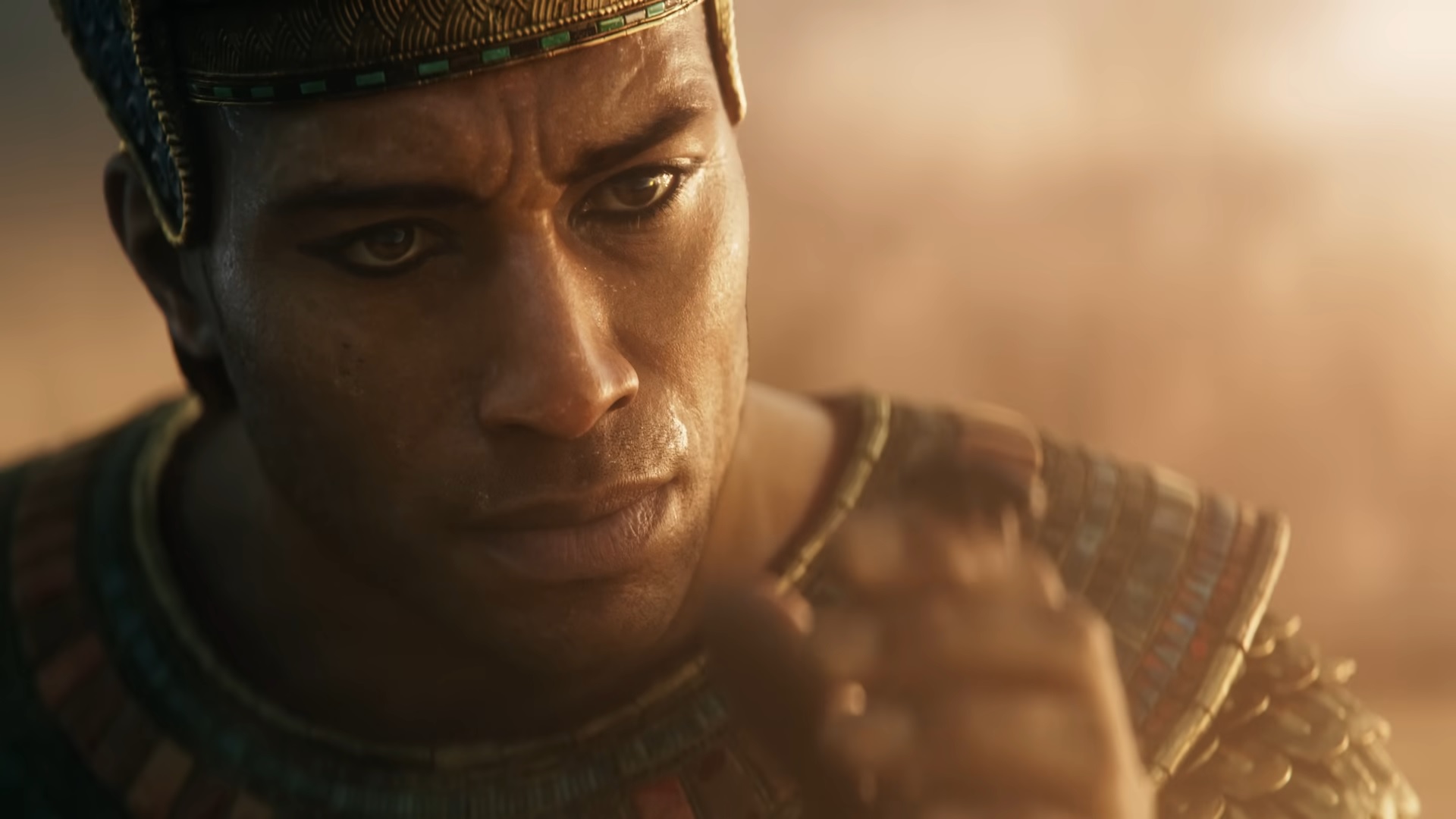I always knew that Ancient Egypt had been around for a while, but looking it up again the other day to shore up my Egyptology, I was still floored by just how long the great civilisation endured for. 3,000 years is the going estimate—from a stone tablet found in 3100 BC declaring Narmer as the first pharaoh, to the Roman conquest in 30 BC when the Emperor Octavian defeated Cleopatra and Marc Antony at the Battle of Actium.
In that massive span of history, great emperors rose and fell, and in Total War: Pharaoh, you get to emulate the legendary leaders of the past as you fight for the Egyptian throne. A big part of that is the Ancient Legacies feature, which I’ll be unearthing here along with the game’s campaign customisation.
Ancient Legacy
(Image credit: Sega)
We’ve partnered up with Sega to create series of articles and videos that showcase the new features of Total War: Pharaoh.
Total War: Pharaoh takes place in the 12th Century BC, in the critical years leading up to the collapse of the Bronze Age. A huge chunk of Egypt’s history had already been written by this point, and there are some big sandals to fill. Early in your campaign, you’ll need to decide which of ancient Egypt’s greatest rulers’ legacies to pursue.
Here are the four Ancient Legacies you can choose from, each with its unique systems, goals, and rewards. But beware, pretender, you can only pick one per campaign, so choose wisely:
Hatshepsut was renowned for establishing trade routes to distant lands, enriching Egypt with exotic goods and wealth. Choosing her legacy opens up a new expedition mechanic, through which you send caravans filled with goods to faraway parts of Egypt, maximising profits by buying goods cheap and selling them to regions where there is demand, then eventually coming home with the spoils.
Following the legacy of Khufu the Builder is one for the Civilization fans. Take over regions in which the great monuments of Ancient Egypt were originally built, such as the Colossal Statues, Black Obelisk, and of course the Great Pyramid, and build them yourself. This process will take time, as each monument is built in several stages, but the rewards for restoring these megaliths are huge.
Feeling a little heretical? Then seek to restore the religion of Aten. This lets you combine two existing deities you’ve discovered, and merge them into Atenism, the worship of the sun’s disc established by the pharaoh Akhenaten. Build shrines and temples to gain Favour with Aten, pick unique effects with each tier, and reclaim the ancient city of Akhenanen, birthplace of Aten, to establish it as the single true faith of Egypt.
Or maybe you want to stay on-brand for what is, in the end, a Total War game. In that case, pursue the legacy of Thutmose the Conqueror. Wage war, accrue Conquest Points, and use those to either generate support among the locals or sabotage the city you’re besieging. Whether you focus more on sabotage or local support will affect the rewards you gain at the end of each conquest.
(Image credit: Sega)
Campaign customisation
Egypt wasn’t conquered in a day. You’re going to spend a good bit of time in your campaign, and Total War: Pharaoh gives you a bounty of ways in which to customise it.
Campaign feeling a bit slow for you? Increase the movement speed of units on the campaign map, and choose ‘Reveal Playable Area’ to see the entirety of the world map from the get-go—although you’ll still have fog of war. You can increase the research rate of Royal Decrees—the game’s tech tree—too.
Perhaps you want your game to focus more on war than diplomacy, in which case switch off diplomacy altogether, make the AI ‘aggressive,’ and increase the Recruitment Capacity for both the AI and yourself to build up your armies faster. You can ramp up the intensity of battle by switching on Battle Realism Mode, which limits the battle UI, restricts visibility to more realistic levels, and prevents you from issuing orders when paused or at half-speed.
There are plenty more weird and wild options to spice up the campaign. For example, once you’ve become familiar with the various factions (like how Ashkalon will always stab you in the back when your defences are down), then randomise their personalities and starting positions to make the game more unpredictable.
Or just go full God mode by ramping up your starting budget, giving yourself Fully-Equipped Generals, and switching off those pesky rebellions and sea raiders. Over at the other end of the difficulty spectrum is, of course, Iron Man Mode, which prevents you from sneaky save-scumming and being able to rematch battles that don’t go your way.
All these tools and ancient legacies make each of your dashes for the throne feel nice and unique. So go out there and do your big-name Egyptian forebears proud. Or at least get buried in the sand trying.











